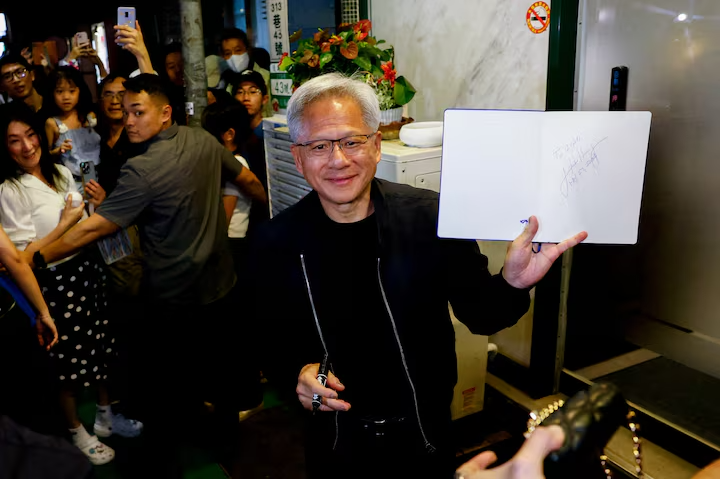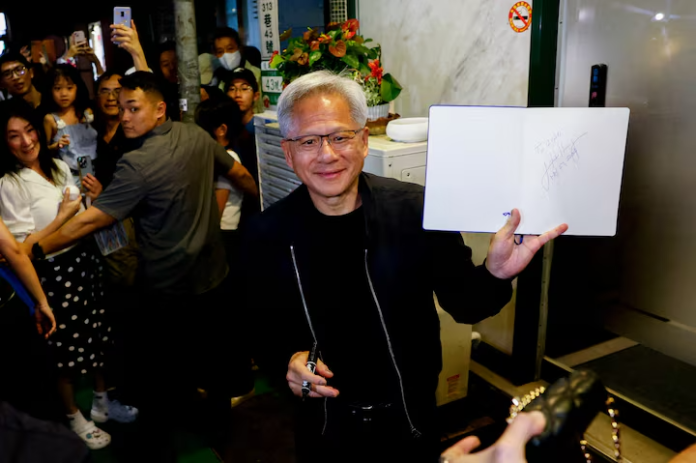In a significant shift for Nvidia’s China strategy, CEO Jensen Huang has confirmed the tech giant will no longer develop Hopper-based AI chips for the Chinese market. This decision comes in response to ongoing U.S. export restrictions aimed at curbing China’s access to cutting-edge semiconductor technology.
Speaking during a public interaction in Taipei on Saturday, Huang stated that the company has reached the limit of what it can do with the Hopper architecture in China. “It’s not Hopper, because it’s not possible to modify Hopper anymore,” he said in a livestream shared by Taiwan’s Formosa TV News network.
The Hopper H20 was Nvidia’s only export-legal AI chip for China after Washington’s restrictions. However, even that model has faced scrutiny. In response, Nvidia is reportedly working on a downgraded version of the H20 chip, tailored to comply with the latest U.S. regulations. This new version is expected to launch within the next two months, as the company looks to defend its market share from Chinese competitors like Huawei.
Huang has long maintained that China is crucial to Nvidia’s global success. The country contributed $17 billion to Nvidia’s revenue for the fiscal year ending January 26, representing around 13% of the company’s total income. Yet, escalating tensions between Washington and Beijing have thrown a wrench into Nvidia’s operations in one of its most lucrative markets.
The U.S. government’s current policy, established in January under then-President Joe Biden, aims to control the spread of artificial intelligence technology by limiting exports of high-end AI chips. Huang criticized this approach, arguing that such restrictions hinder global technological growth and diminish U.S. influence. “The previous AI export rules were flawed,” Huang remarked. “We should be working to expand U.S. technology worldwide, not shrink it.”

Interestingly, President Donald Trump has publicly stated that he would cancel the AI diffusion framework if re-elected, claiming there are better ways to manage the risks without halting progress. This stance has added political uncertainty to Nvidia’s already complex international strategy.
In the meantime, Nvidia continues its efforts to maintain a foothold in China. The company has already made moves to expand its research and development footprint in Shanghai, despite regulatory headwinds.
While it remains to be seen what Nvidia’s next China-specific chip will look like, one thing is clear: the era of Hopper-based AI chips in China is over. The tech world now waits to see what the semiconductor giant will unveil next — and whether it can retain its competitive edge in an increasingly fragmented global market.



